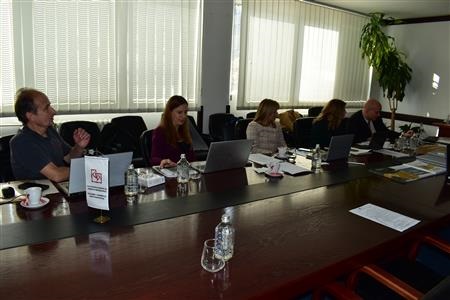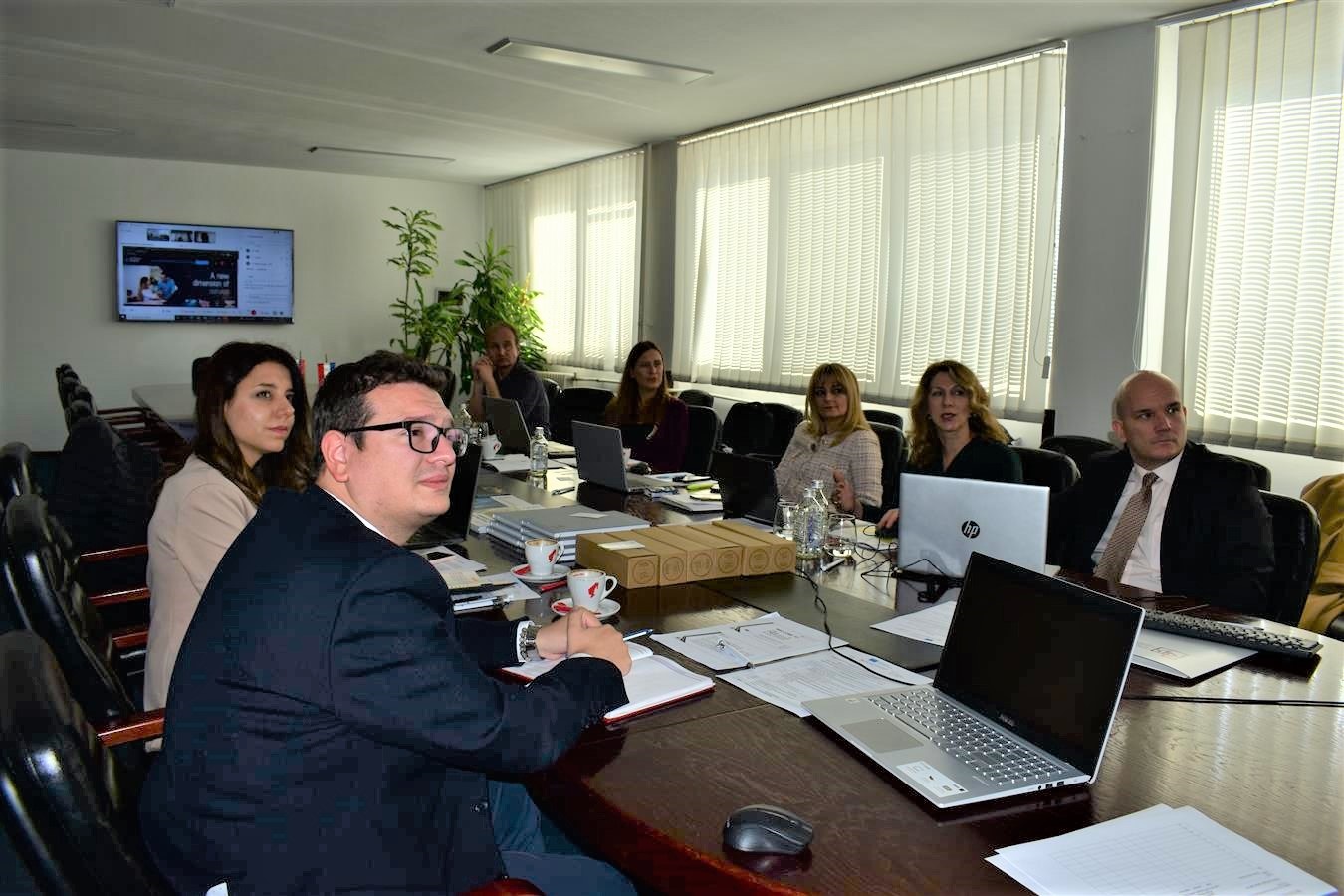Undeniably, the need to promote the work process by expanding the application of modern information and communication technologies requires digitalization of the sectors and higher productivity, being key factors behind company competitiveness. In circumstances where certain sectors can partially base their development on new technologies, knowledge, innovation, and IT tools, construction remains one of the least digitalized sectors.
Aiming at developing common indicators as to the digitalization extent and degree of construction companies, testing the relevance of the indicators by using examples of companies from the three countries, the Economic Chamber of North Macedonia, in cooperation with the Chamber of Commerce and Industry of Slovenia and the Croatian Chamber of Economy, is starting a new initiative dubbed Digital transformation is making its way to businesses – development of key performance indicators to increase sector productivity – DIG-IN-KPI, supported by the European Commission under the Erasmus+ Program.
Organized by the Chamber, the first meeting between the partners took place on 14 and 15 November 2022, involving a discussion on the coming activities, which will prioritize determining common indicators as to the digitalization extent and degree of construction companies. Apart from the business sector, educational institutions and state bodies are expected to be project beneficiaries as well.
The project plans for cooperation with the members of the FIEC EU – Construction 4.0 Working Group. A representative of the European Construction Industry Federation (FIEC) also attended the meeting, greeting the initiative of the three chambers in terms of contributing to the development of the construction and building materials sector.

Based on the data obtained, the chambers will create a free online tool for the companies with which they could assess the digitalization degree of the company. By the end of the project, the three chambers will inform the state bodies about the opportunities for financial support for the digital transformation of construction companies, aiming to multiply the return on the future earmarked state funds into the state budget.
The representatives of the three chambers unanimously pointed out that the construction and building materials sector has a particular significance to the structure of their economies, accounting for 7-10% of the gross domestic product on average. Initiatives introduced by this new partnership aim at increasing the productivity in the construction sector through wider application of digital tools and skills, both in companies and in educational institutions, which in the long term would raise the average value added per construction employee up to the European Union average.

 Based on the data obtained, the chambers will create a free online tool for the companies with which they could assess the digitalization degree of the company. By the end of the project, the three chambers will inform the state bodies about the opportunities for financial support for the digital transformation of construction companies, aiming to multiply the return on the future earmarked state funds into the state budget.
Based on the data obtained, the chambers will create a free online tool for the companies with which they could assess the digitalization degree of the company. By the end of the project, the three chambers will inform the state bodies about the opportunities for financial support for the digital transformation of construction companies, aiming to multiply the return on the future earmarked state funds into the state budget.